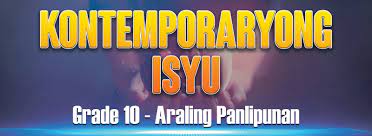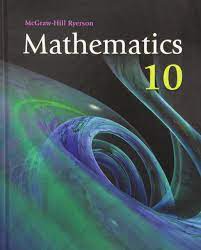
ARTS 10 - 3rd Quarter
Modern life has become associated with technological advancement. Many forms of gadgets and devices are created that can be mass produced, mass distributed, and have been widely accessible to everyone.
As you go through with this module, modern techniques and trends in photography, film, print media, digital media, and product and industrial designs shall be explored. In this lesson, you will be learning the different elements of art which are basically applied in different media-based arts and designs in the Philippines.

ARALING PANLIPUNAN 10
Ang kurso na ito ay tumatalakay sa mga tugon sa mga isyu sa kasarian at lipunan.

MATHEMATICS 10
The framework is supported by the following underlying learning principles and theories: Experiential and Situated Learning, Reflective Learning, Constructivism, Cooperative Learning and Discovery and Inquiry-based Learning. The mathematics curriculum is grounded in these theories. Experiential Learning as advocated by David Kolb is learning that occurs by making sense of direct everyday experiences. Experiential Learning theory defines learning as "the process whereby knowledge is created through the transformation of experience. Knowledge results from the combination of grasping and transforming experience" (Kolb, 1984, p. 41). Situated Learning, theorized by Lave and Wenger, is learning in the same context in which concepts and theories are applied. Reflective Learning refers to learning that is facilitated by reflective thinking. It is not enough that learners encounter real-life situations. Deeper learning occurs when learners are able to think about their experiences and process these, allowing them the opportunity to make sense of and derive meaning from their experiences. Constructivism is the theory that argues that knowledge is constructed when the learner is able to draw ideas from his/her own experiences and connect them to new ideas. Cooperative Learning puts premium on active learning achieved by working with fellow learners as they all engage in a shared task. The mathematics curriculum allows for students to learn by asking relevant questions and discovering new ideas. Discovery Learning and Inquiry-based Learning (Bruner, 1961) support the idea that students learn when they make use of personal experiences to discover facts, relationships, and concepts.
